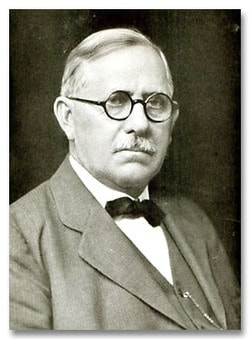
After Jacob deceived his father by putting on a goatskin and Esau's clothes, he swindled his brother Esau out of his birthright and his father's parting blessing. But we then read that Jacob left home and fled from the face of his brother Esau, and went into a far country and hired himself out to a man whose name was Laban, and Laban was a relative of Jacob's grandfather Abraham, and now we see Laban comes into play at this time, and takes a hand in deception. Jacob had fallen desperately in love with Laban's first daughter, Miss Rachel, and he was so in love with this beautiful maiden that he finally contracted to work for her seven years, and when the seven years were up and the great wedding day was set, behold Laban covers Miss Leah with a heavy veil and presents her to Jacob for his daughter Rachel, and after the wedding ceremonies were all over, and Jacob was rejoicing in the fact that his seven years were up, and now he had his beautiful bride, Miss Rachel, behold to his surprise, when the veil was removed, he found that Laban had deceived him, and had given him Leah. Then no doubt his mind turned back to the day seven years before when he himself had put on a goatskin and deceived his old father, and had gotten Esau's blessing and birthright.
We see again, that the seed of deception is still bearing fruit in the family of Abraham, for as he had deceived his father, now Laban had deceived him. But Jacob was desperately in love with Rachel, and signed another contract to work seven years longer for Rachel. Finally he succeeded and won the girl that he had worked for fourteen years. But we also read again in the 31st chapter of Genesis that during this period of time Laban deceived Jacob not only in giving him Leah when he should have had Rachel, but that he changed his wages ten times. Also we read at this time that little Rachel comes to the front and takes a hand in the deception and stole one of her father's household gods and covered this god with household goods, and deceived the old man, and made him believe that she didn't have it.
But the end is not yet, for we read again in the 37th chapter of Genesis, that Jacob's ten oldest sons were in the field, keeping their father's flocks, and little Joseph and Benjamin were at home with their father, and Jacob sends Joseph out to the field to see how his ten sons were getting along, and Joseph's brethren caught the lad Joseph, and stripped him of the beautiful coat his father had made him, and killed a young goat and dipped Joseph's coat in the blood, and brought it to the father and said, "See if you can tell whether or not this is your son Joseph's coat." And Jacob said, "Yes, this is my son's coat, and no doubt an evil beast has torn him to pieces." But while they were carrying the coat to their father, little Joseph, whom they had just sold to a company of Ishmaelites that were going into Egypt, was at that time on his way to Egypt. What a wonderful case of deception! Jacob killed a goat and put on its hide and deceived his father, and now his sons kill a goat and roll Joseph's beautiful coat in its blood, and deceive their father, and we see again, that the seed of deception that was sown in the great-grandfather of these young men is still bearing fruit.
But the end is not yet, for many years later we read in the 42d chapter of Genesis that these same ten brethren that sold Joseph and dipped his coat in blood and deceived their father, are now standing in the presence of the governor of Egypt. They didn't know that it was their little brother Joseph, and he treated them as spies, and had them put in prison. While they were in prison they talked between themselves, and said, "No doubt, but this is our sin, that has overtaken us, for the way we treated our little brother Joseph." And Joseph heard their conversation and it almost broke his heart, and he had to flee from their presence and go out where he could weep.
How strange this story all ends. Joseph is a type of Christ; his brothers represent a perishing world coming to Christ, seeking the bread of life. It also brings out the two works of grace, for when they went to Egypt the first time, they saw Joseph as a great ruler, but they got their sacks full of corn; but when they went to Egypt the second time they knew Joseph then as their brother, and they got several wagon loads of corn, and honey, and the good things of the land. So it is with the young convert. He sees Jesus Christ as the ruler of the world, but when he is sanctified wholly he sees Jesus as his Elder Brother.
Robinson, Reuben A. (Bud). The Collected Works of 'Uncle Bud' Robinson (Kindle Locations 2623-2664). Jawbone Digital. Kindle Edition.
 RSS Feed
RSS Feed